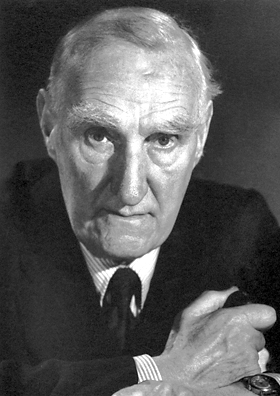Why was Lord Boyd-Orr Awarded the Nobel Prize for Peace in 1949?
Exploring the Noble Efforts that Led to Lord Boyd-Orr's 1949 Nobel Peace Prize
Lord Boyd-Orr: A Noble Pursuit of Peace and Nutrition
In the annals of history, the Nobel Prize for Peace has been bestowed upon individuals whose efforts have significantly contributed to the advancement of global harmony and the resolution of conflicts. One such remarkable laureate was Lord John Boyd Orr, whose pioneering work in the realms of nutrition, food security, and international cooperation earned him the prestigious accolade in 1949.
 A Visionary Path to Peace
A Visionary Path to Peace
Lord Boyd-Orr, a Scottish physician, biologist, and politician, dedicated his life to addressing two interconnected challenges that plagued humanity: hunger and the potential for conflict arising from scarcity. In the wake of World War II, the world recognized the urgent need to prevent future conflicts and create conditions for lasting peace. Boyd-Orr’s groundbreaking contributions focused on eradicating the root causes of unrest and fostering cooperation through nourishment and sustenance.
Nutrition as a Path to Peace
Boyd-Orr’s expertise in nutrition science led him to understand the direct link between inadequate food resources and social instability. He believed that ensuring access to nutritious food for all was not only a moral imperative but also a strategic move toward preventing conflicts fueled by scarcity-driven desperation. His research and advocacy demonstrated how hunger and malnutrition could drive social unrest and hinder economic development.
The Founding of FAO
Lord Boyd-Orr’s commitment to global food security and peace culminated in the founding of the Food and Agriculture Organization (FAO) of the United Nations in 1945. He played a pivotal role in shaping FAO’s mission to alleviate hunger and improve agricultural productivity worldwide. By focusing on collaborative efforts and sharing scientific knowledge, Boyd-Orr sought to empower nations to work together toward a future free from the scourge of famine and strife.
Humanity at the Core
What set Lord Boyd-Orr apart was his unyielding belief in the potential for cooperation among nations, transcending political differences for the greater good. His advocacy for nutritional standards, the equitable distribution of food resources, and his relentless pursuit of solutions earned him not only the respect of his peers but also the recognition of the Nobel Committee.
Nobel Prize for Peace
In 1949, the Nobel Prize for Peace was bestowed upon Lord Boyd-Orr, honoring his visionary leadership in the fields of nutrition, agriculture, and international collaboration. The committee acknowledged his role in laying the foundation for a more stable and peaceful world, recognizing that addressing hunger and ensuring access to basic necessities were essential components of preventing conflicts.
Legacy of Peace Through Nutrition
Lord Boyd-Orr’s Nobel Prize stands as a testament to the power of knowledge, compassion, and cooperation in shaping the destiny of nations. His legacy continues to inspire generations of leaders, scientists, and activists working to alleviate hunger, promote sustainable agriculture, and foster a world where the pursuit of peace is intertwined with the pursuit of well-being for all.
In an era marked by complex global challenges, Lord Boyd-Orr’s journey reminds us that the path to peace often begins with the simplest of human needs – nourishment – and the unwavering belief that a world free from hunger is a world primed for lasting harmony.




